Program overview
Take a deep dive into the mysterious world beneath the water’s surface. Become skilled in caring for the aquatic animals and plants that populate our zoos and aquariums, and learn the intricacies of the fastest-growing sector of the food industry: the cultivation of marine and freshwater species. UNE’s bachelor’s degree in Aquaculture and Aquarium Science prepares you for a range of aquatic science professions, and there is no better place for your studies than our unique riverside and oceanfront campus.
The B.S. in Aquaculture and Aquarium Sciences is no longer accepting students. The B.S. in Aquaculture, Aquarium Sciences, and Aquaponics and the B.S. in Sustainable Ecological Aquaculture are UNE’s exciting new majors for students interested in these areas.
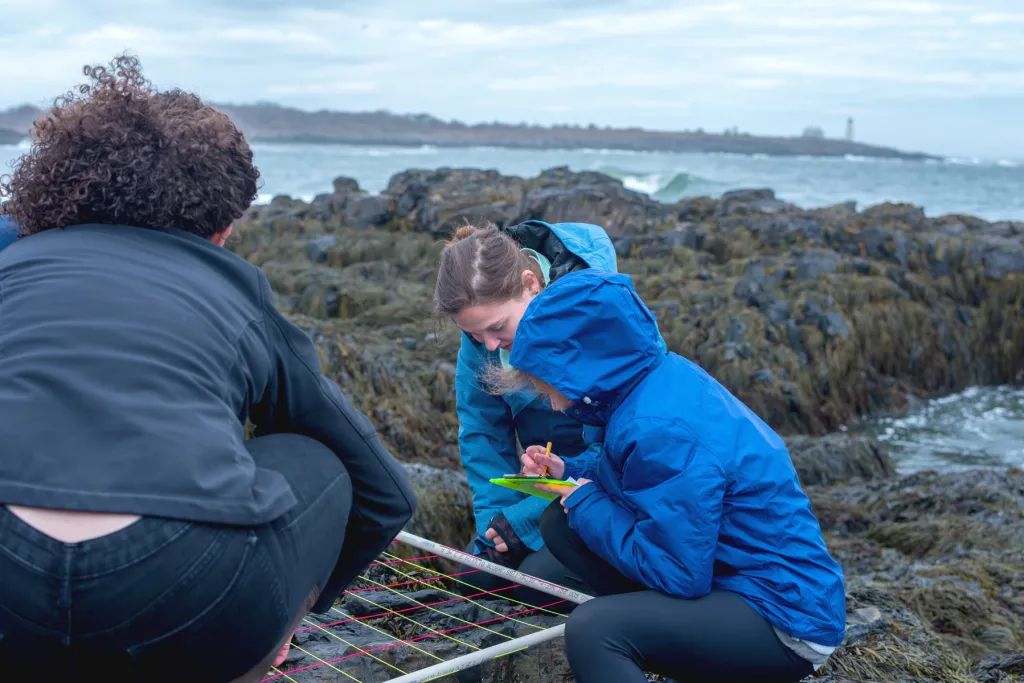
Why UNE for Aquaculture and Aquarium Science
With the only Bachelor of Science program in Aquaculture and Aquarium Science in the U.S., UNE is the ideal place for your studies. Located at the convergence of the Saco River and Atlantic Ocean, we offer direct access to both fresh and salt waters as well as cutting-edge facilities.
- Recirculating aquaculture, aquaponics, and flow-through seawater systems
- Aquarium Science and Conservation Lab
- Zebrafish facility
- On-campus administration of AALSO (Aquatic Animal Life Support Organization) Level 1 Certification exam
Academics
Examples of Available Courses
There are many ways you can navigate this major. The following are some examples of the exciting courses that you can take:
- Principles of Aquaculture
- Techniques in Finfish and Shellfish Culture
- Health, Nutrition, and Feeding of Cultured Organisms
- Fish Genetics
- Principles of Aquarium Operations & Science
- Environmental Microbiology
Meet Chris, Aquaculture '22
An aquaculture major interning at an oyster farm in Georgetown, Maine, Chris is learning — hands on — how to raise a sustainable, renewable protein source with the goal of starting his own oyster farm.
Careers
While developing a solid foundation in aquatic sciences, you will acquire strong analytical business skills, master vast technical skills, and nurture your ability to work closely with others through classes, research, and internships. With virtually all of the program's graduates employed in their field or accepted into graduate school within six months of receiving their diplomas, we know that our students leave the program ready to succeed. They have pursued a wide range of professions, including:
- Aquatic Collection Curator
- Entrepreneur
- Breeder
- Water Quality Technician
- Fish Farmer
- Veterinarian
- Hatchery Manager
- Fisheries Biologist
Career Advising
Whether you have a specific career goal in mind or a vague idea of the field that interests you, Career Advising is here to help you plan your next step.
Global Education
In addition to opportunities to spend a semester abroad in Tangier, Morocco or Seville, Spain for the same cost as studying at UNE's Maine campuses, you may choose to enroll in one of our marine sciences-related travel courses. To enroll in these courses and learn more, visit the Global Education Program website.
Interested in studying abroad? Make a plan with your advisor.
BIO 422/422L: Coral Biology
This fall semester course presents an in-depth study of the biology and taxonomy of corals while examining the ecology of the coral reef system and the future of reefs, concluding with a field lab. You will snorkel in the beautiful lagoons of Ambergris Caye, the Hol Chan and Bacalar Chico Marine Reserves. The group is housed in a field station on the northern tip of Ambergris Caye with access to the reef ecosystem, mangroves, seagrass beds, and jungle.
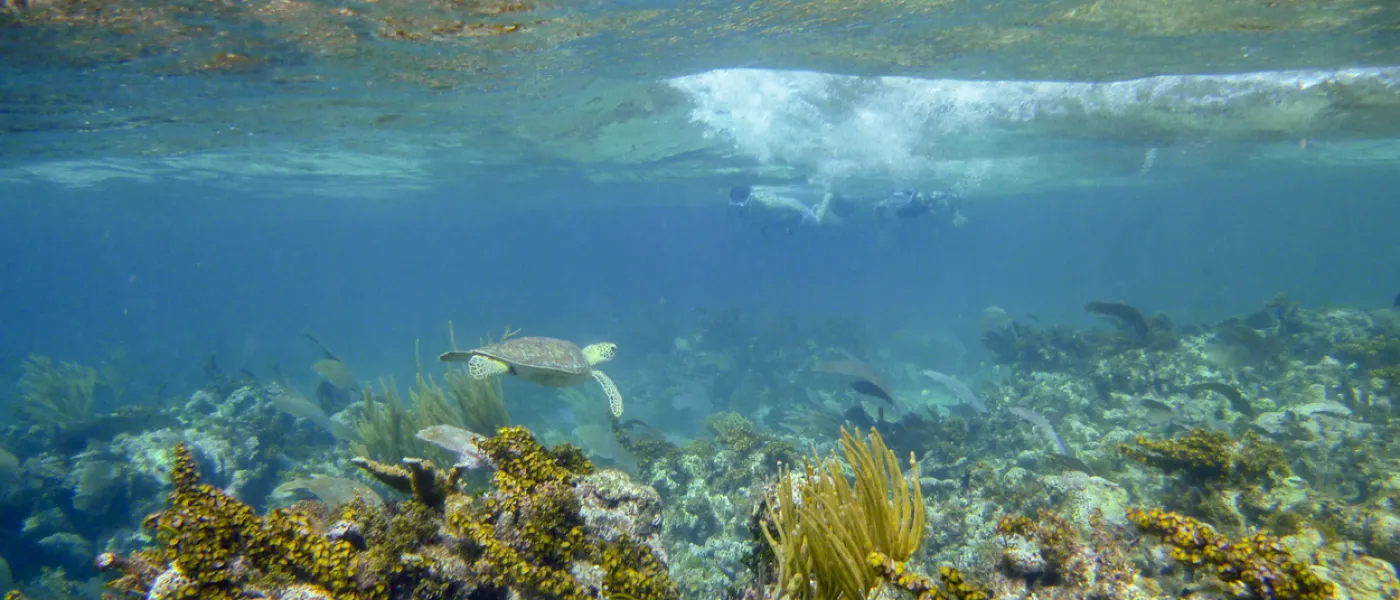
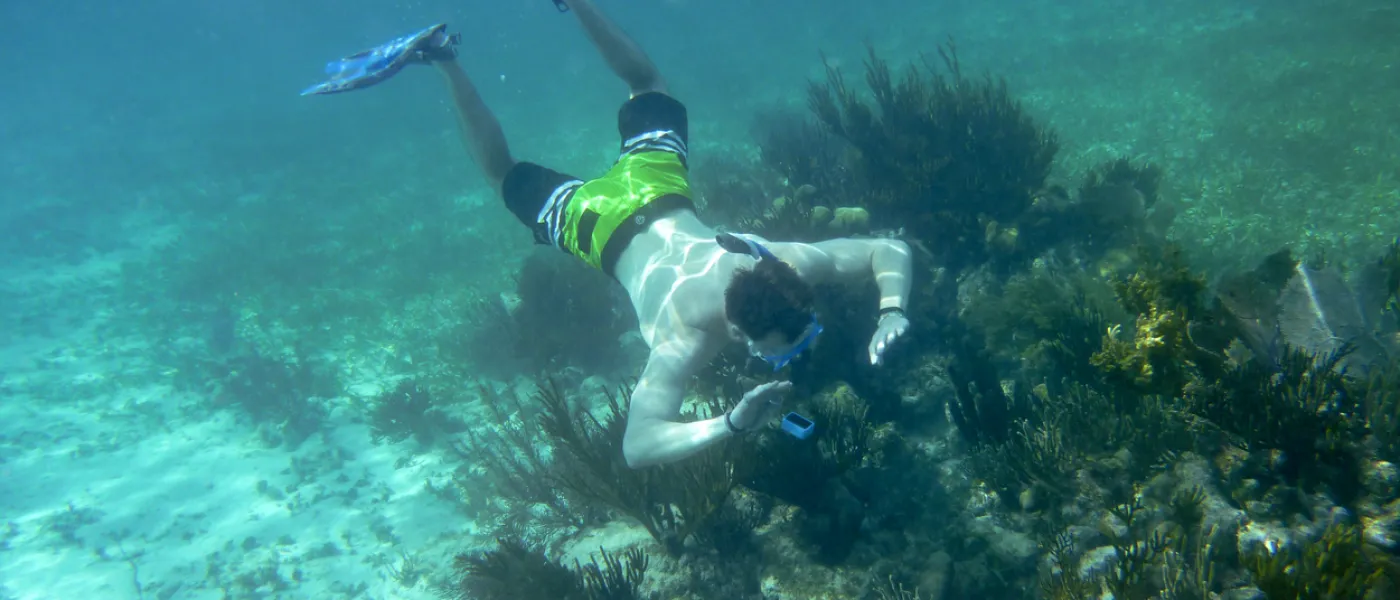
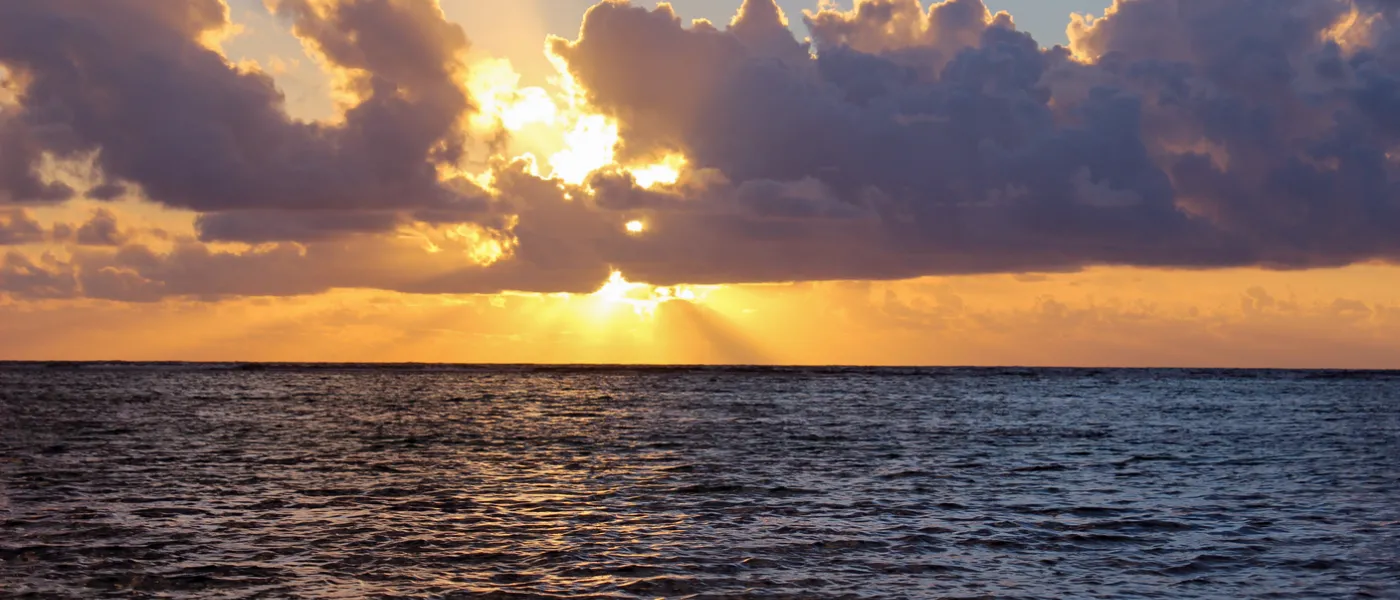
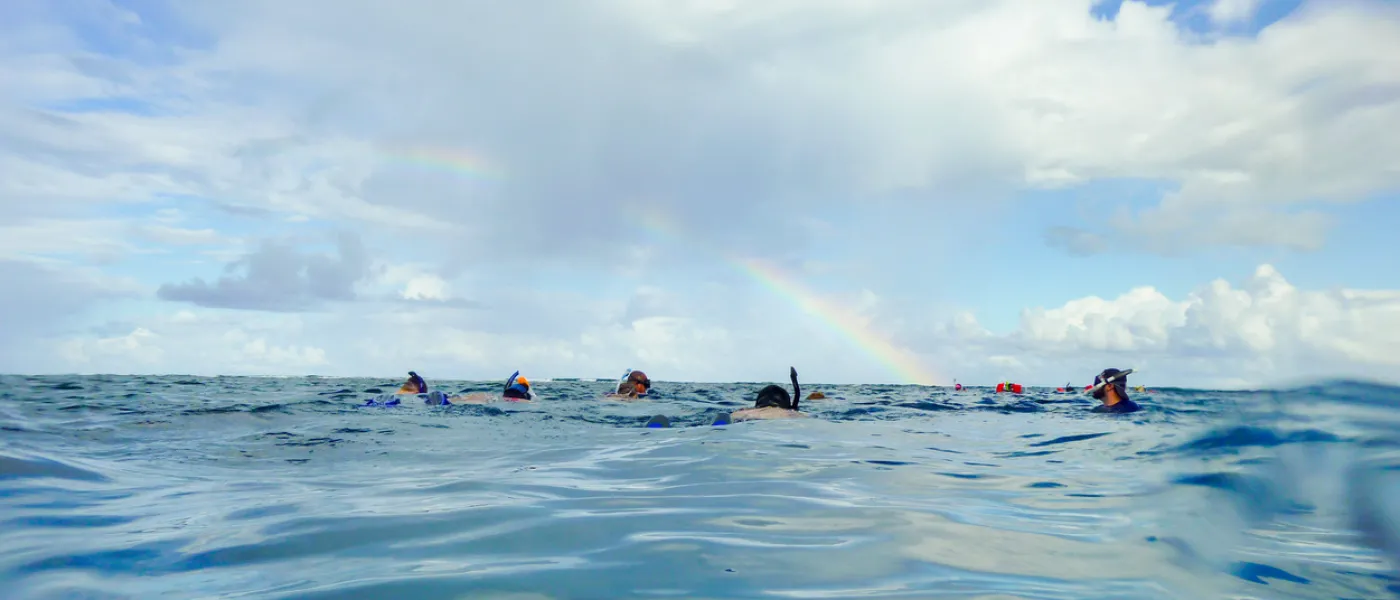
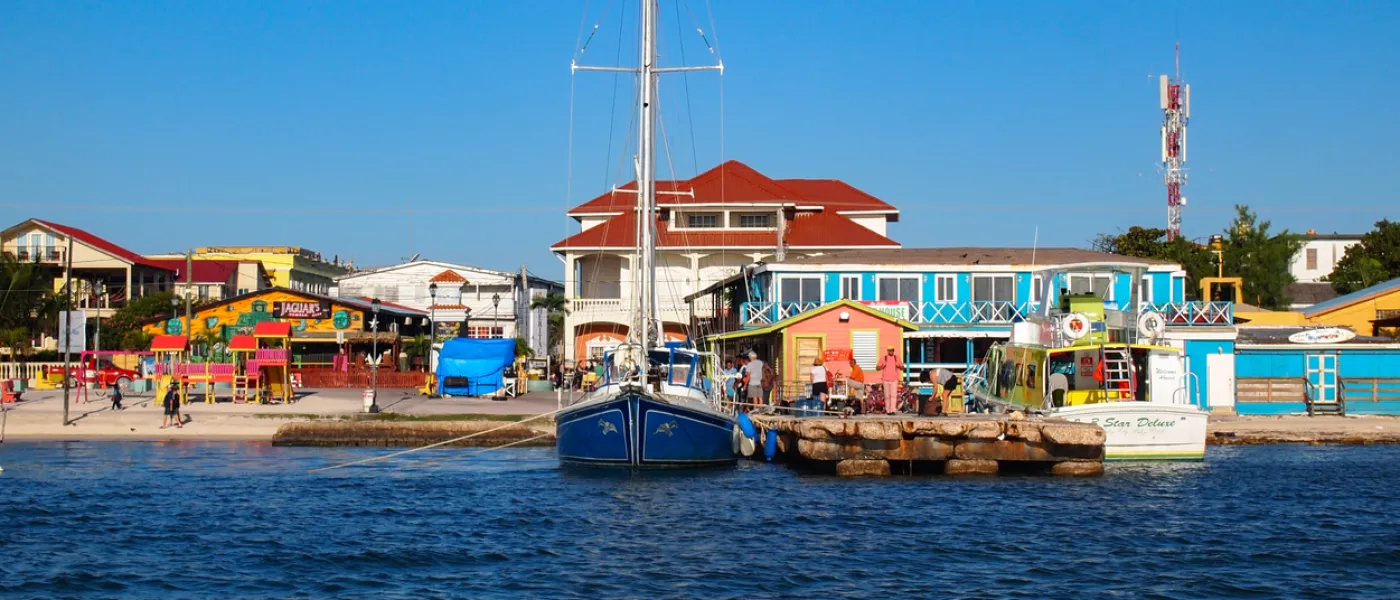
MAR 451: Natural History and Evolution of the Galápagos Fauna
This course is designed to familiarize you with the biota of the Galápagos Islands, island history, ecology, and the behavior and evolution of the islands' animals.
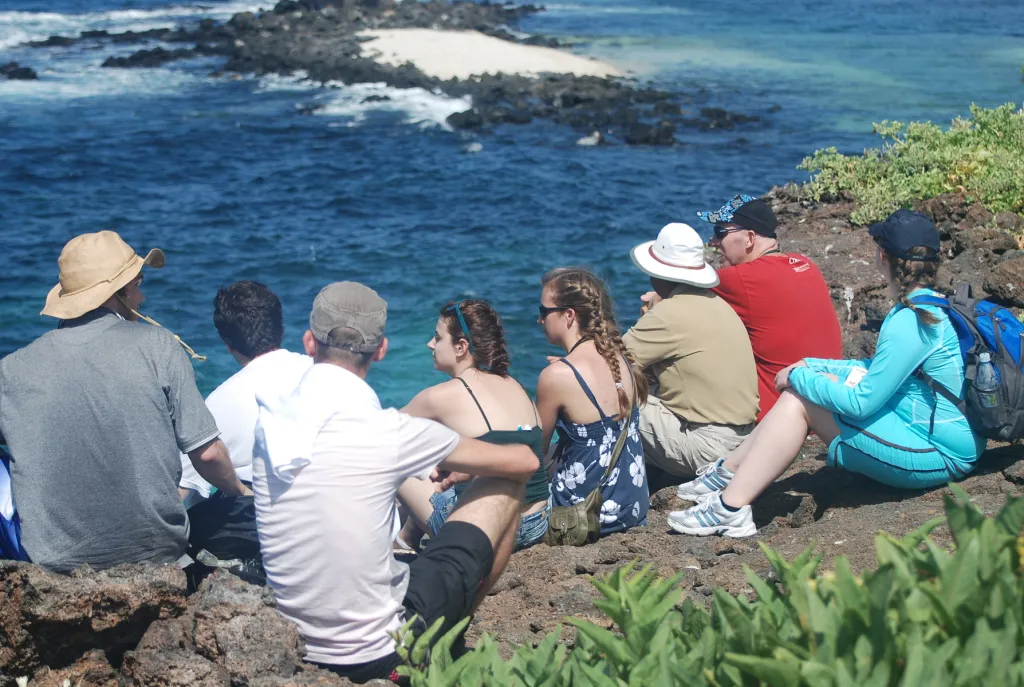
Semester-Long Study Abroad Program
Spend a semester abroad in Akureyri on the northeast coast of Iceland. You'll be studying in Iceland's second-largest urban area surrounded by mountains and fjords.
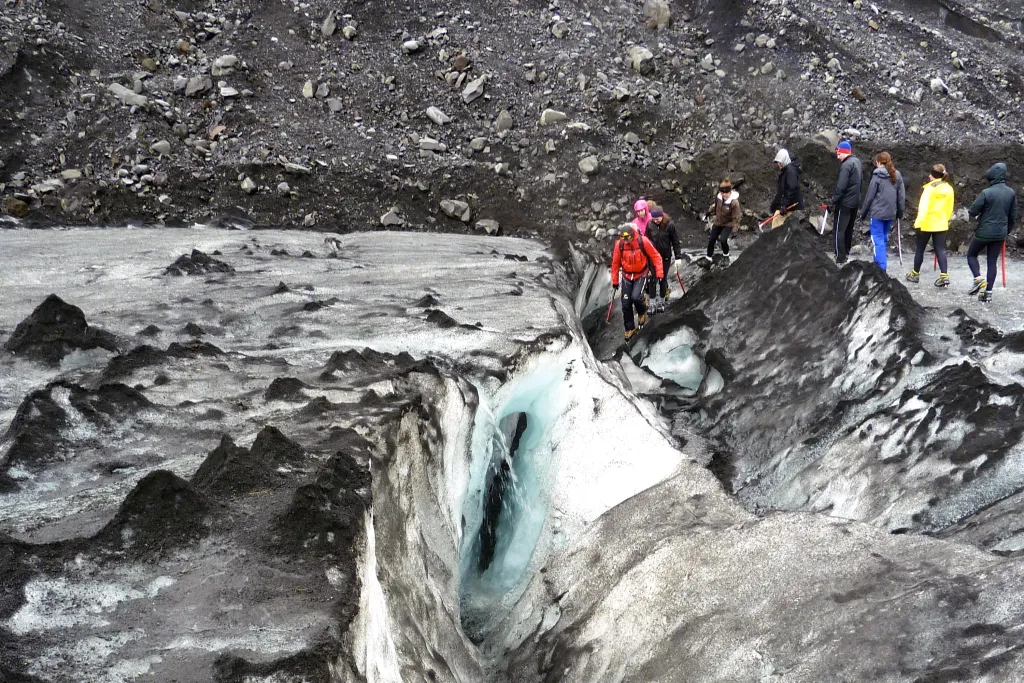
BIO 421: Conservation and Ecology of a Caribbean Island
This course covers topics in the history and geology of the Caribbean, including terrestrial, island, and marine biodiversity, plus the ecology and evolution of populations.

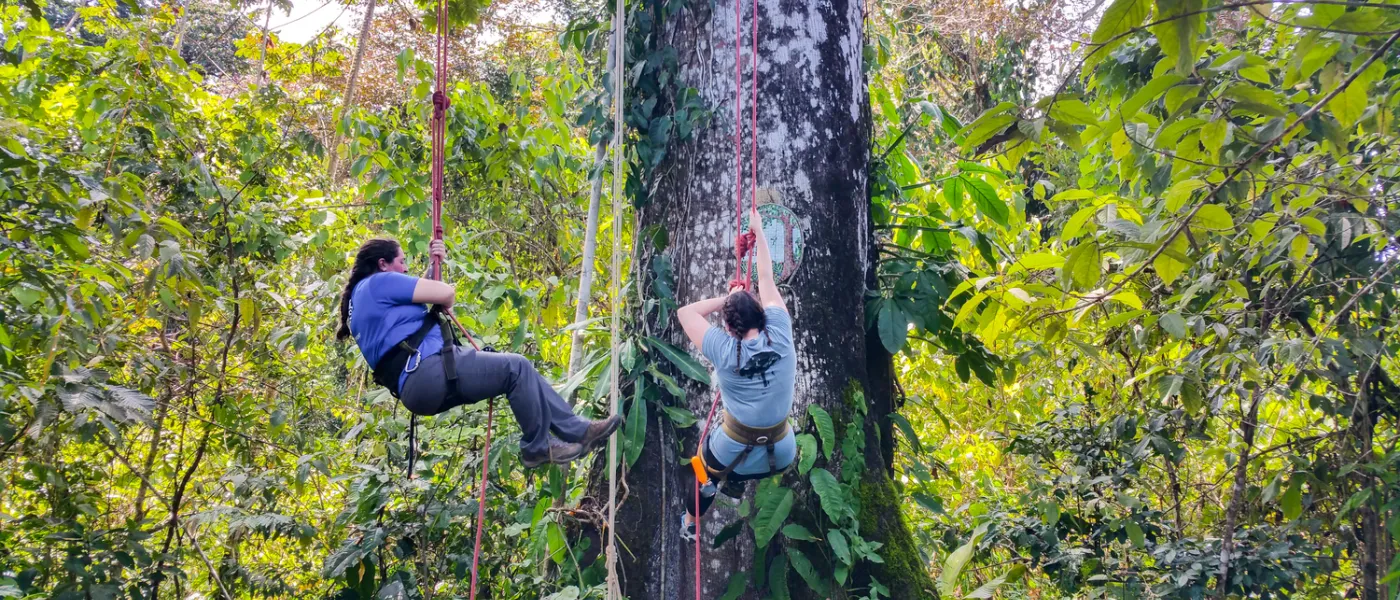
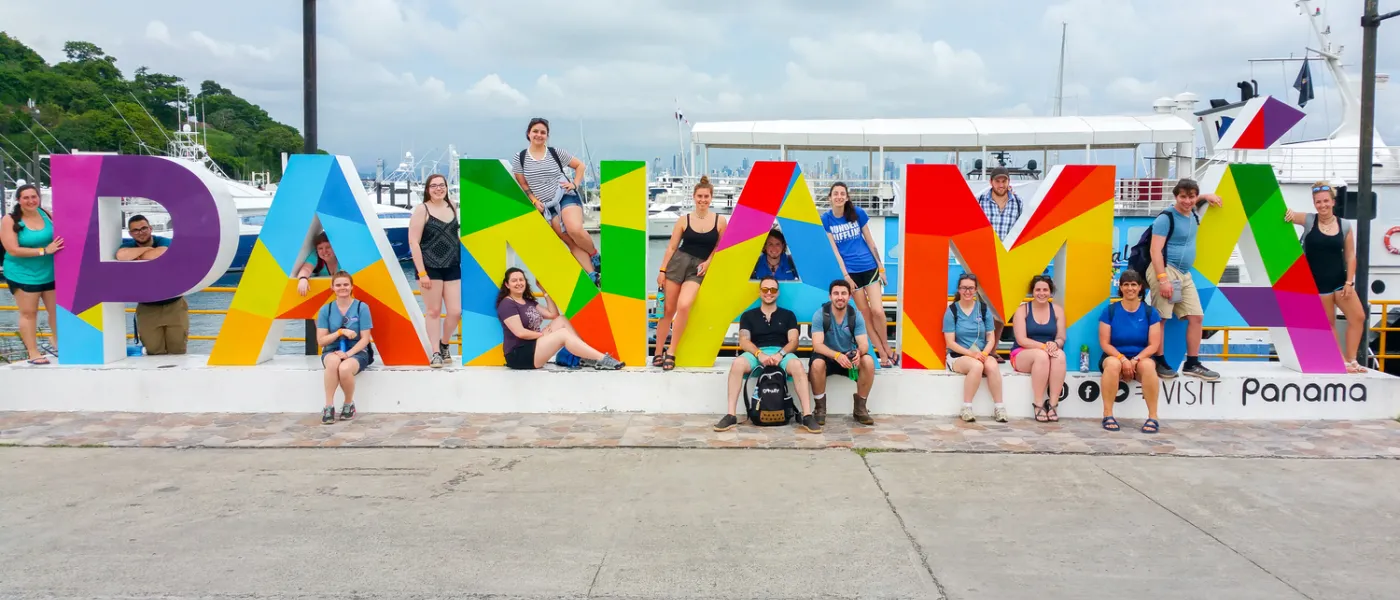
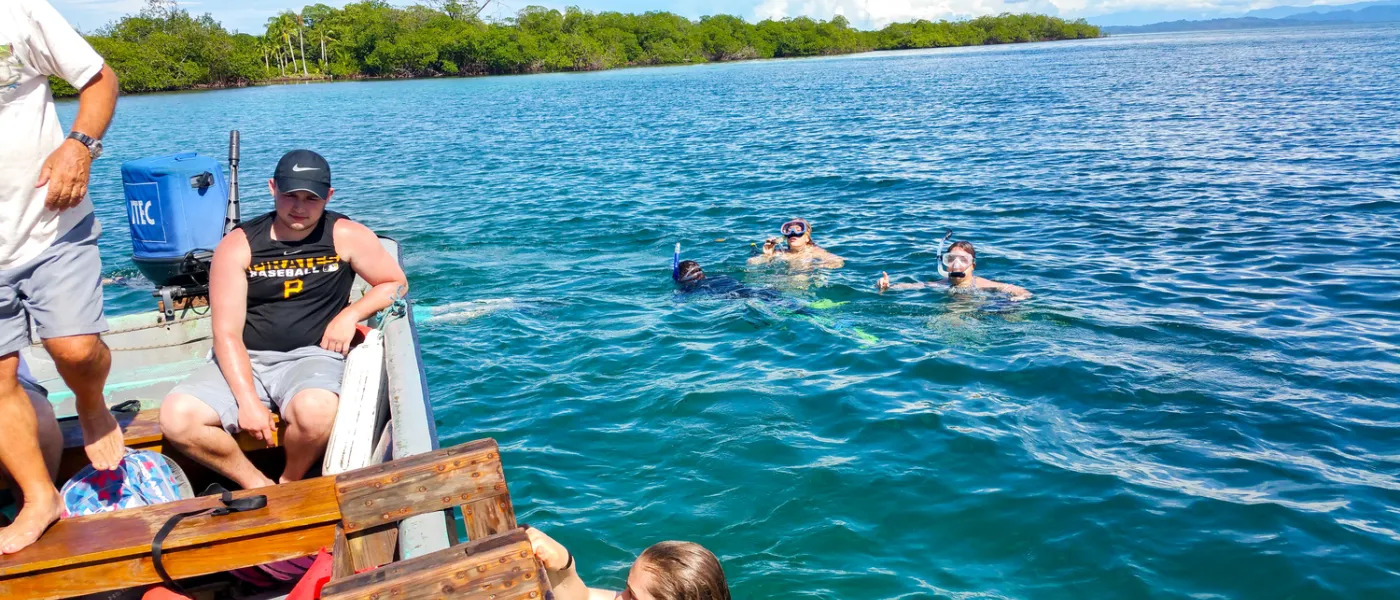
The Institute for North Atlantic Studies of the University of New England is an education and research leader for Maine connected to the North Atlantic/Arctic region grounded in the United Nations Sustainable Development Goals and built to support local to global collaborative approaches to shared challenges and opportunities.
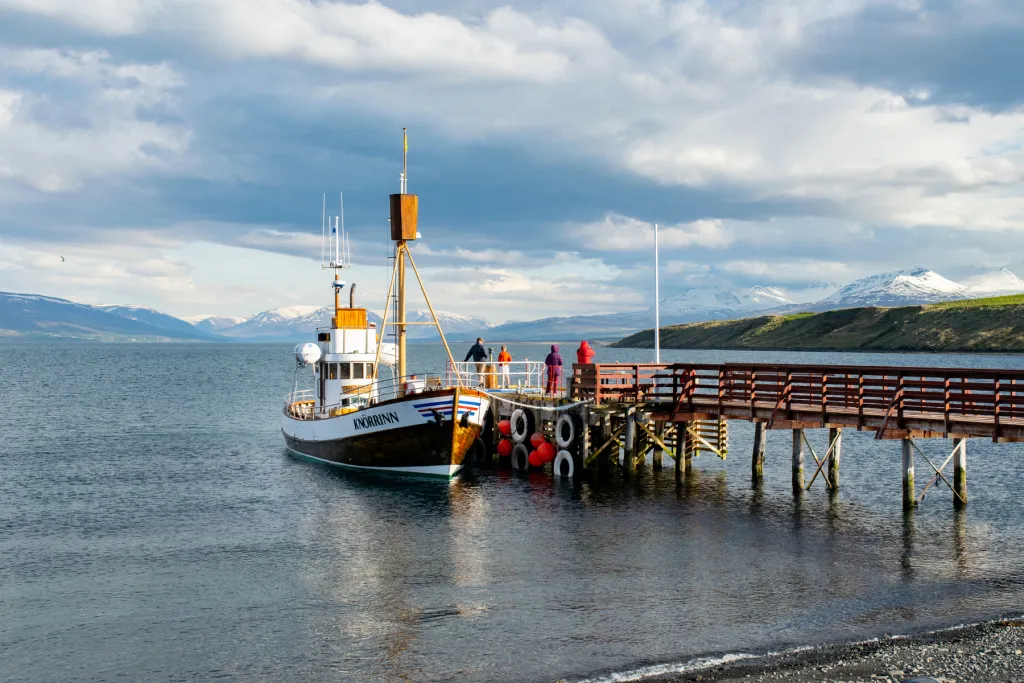
Experiential Learning
Our Aquaculture and Aquarium Science degree program provides a skills-heavy, hands-on curriculum that uses an applied approach to marine and freshwater aquatic sciences, giving you real-world experiences — because studying is not the same as doing.
Internships
Our active community partnership with many organizations provides work experience at diverse sites, including:
- Nonesuch Oyster Co.
- New England Aquarium Services
- Saco Salmon Restoration Alliance and Hatchery
- Gaia Live
For more information email the Academic and Career Advising Center at advising@une.edu.
Skills and Opportunities
- Learn to care for aquatic animals and plants
- Design and operate aquaponics systems
- Master the principles of water movement and filtration
- Perform your own research, beginning freshman year
- Attend and present at national conferences
Hands-on Marine Research
Research Opportunities
Undergraduate research is an essential part of our programs, no matter which major you choose. All students conduct research in the field through their regular coursework beginning in their freshman year, with additional opportunities to gain experience through faculty labs and multi-institutional initiatives.
Research Fellowships
In addition to lab classes and faculty lab positions, UNE provides pathways for students to obtain research experience through fellowships from partners and programs including Pratt & Whitney, Bristol Seafood, SEANET, and the Summer Undergraduate Research Experience.
Research Areas
The field of Marine Science is as broad and diverse as the vast oceans that cover most of our planet. At UNE we touch upon all facets of marine science with special focuses in the following areas of research.
Applied Marine Technology
Applied marine technology is a crucial Marine Programs research area that cuts across all others. Robotics, research vessels, remote and autonomous underwater vehicles, environmental monitoring, and modeling are all vital tools that enable modern marine research to occur. Researchers in this area are interested in innovations in and novel applications for marine technology.
Part of our dedication to experiential learning includes providing opportunities to garner real-world skills that make you sought after in the job market and graduate education institutions. A shining example of this is our association with Aquatic Animal Life Support Operators (AALSO). AALSO is a 501 c6 nonprofit organization that focuses on the education and training of aquatic life support operators around the world. AALSO members are those behind the scenes at research institutions and large public aquariums around the world who design, construct, and maintain large aquatic husbandry systems. AALSO provides professional credentialing and proficiency certifications that carry real weight in the industry. UNE is one of only two academic institutions who have been approved by AALSO to administer these tests to our students. Meaning you can walk out the door with a degree in hand, and a professional industry certification in your back pocket.
Researchers:
Boats, for obvious reasons, are important to marine research. At UNE we are fortunate enough to have a fleet of research and education vessels [ATS1] from 18’ to 32’ that are utilized in our programs. Add to this our faculty and professional staff with professional vessel operation credentials and experience operating and conducting science aboard ships and research vessels all over the world — and UNE Marine programs are well suited to help you gain the important technical knowledge needed to be proficient and safe both operating and conducting research at sea.
Researchers: Tim Arienti
The oceans cover more than 70% of the planet. The interconnectivity of life and ecosystems in the sea are incredibly complex, and distinctly linked to both the land and our atmosphere. Such complexity is nearly impossible to understand without the powerful predictive capacities of computer models. These models, based on data collected in the field, from satellites, the geological record, and elsewhere, are used to forecast (and hind-cast) everything from fish populations and food webs to ocean circulation, hurricanes, and climate change.
Researchers:
Ocean robotics and smart technology — in the form of underwater drones, manned submersibles, water quality sensors, oceanographic buoys, and camera systems — is a rapidly growing, and increasingly important marine field. In the age of technology, these tools are becoming vital components in enabling cutting-edge marine research across the board.
Researchers:
Biology of Marine Organisms
Our Marine Programs faculty and professional staff conduct a wide range of research in the areas of biology and ecology of marine organisms. This research area is very broad and ranges from marine genetics to the migration patterns of large animals like sharks, seals, and whales. From seaweed to sharks — plankton to pinnipeds (seals!) our team covers it all.
Food web dynamics focuses on how energy moves through organisms in an ecosystem through primary productivity (photosynthesis) and consumers. Researchers in our Marine programs study these interactions to create a “who’s eating who” web of connections between organisms in an ecosystem.
Researchers: Carrie Byron, Ph.D.
Invasive species are any species introduced to an ecosystem in which they are not native that then go on to cause disruption or harm to the functioning of that ecosystem. Marine organisms are adept at hitching rides in ballast water of ships, through hitchhiking on marine debris, or even through deliberate introduction. Researchers at UNE study these organisms and their ecological interactions and impacts in the Gulf of Maine and beyond.
Researchers: Markus Frederich, Ph.D.
There are more than 20,000 species of marine and fresh water bony fish on the planet, while mollusks alone (snails, bivalves, etc.) comprise more than 85,000 known species. Of all the expansive biodiversity contained within our oceans, the vast majority is contained within the marine invertebrates. With so much diversity, the opportunities for research in marine invertebrates are almost inexhaustible.
Researchers:
Life in the sea poses challenges unique to oceanic organisms, especially the smallest of those (microorganisms). By virtue of being immersed in water, they are at the mercy of the tides, currents, chemistry, and geology of the sea. Oceanography is the study of these physical properties and processes in the ocean — physical, chemical, and geological. Oceanography researchers at UNE study how these oceanographic components interact with each other and affect life in the sea.
Researchers:
With few exceptions, marine microbes and plankton form the base of the marine food web. Small but mighty, the plankton are the fuel for life in the sea. Researchers within our Marine programs study many facets of the biology, ecology, and even chemistry of this important and diverse group of organisms.
Researchers:
The largest organisms in an ecosystem are often sentinels of ecosystem health and serve key roles in the health and balance of our oceans. UNE researchers study the biology and ecology of sharks and marine mammals in the Gulf of Maine and across the globe.
Food from the Ocean
With a global human population headed towards 10 billion by 2050, understanding the interactions between the ocean and what we eat is more important than ever. Our location on the coast of Maine has a deep heritage and connections to the people and communities who have harvested food from the sea, and the ecosystems that provide it. We have robust research and education programs in this focus area including fisheries science and management, ecological aquaculture, marine entrepreneurship, migration of highly migratory species, and food web ecology.
Fisheries science and management are both distinct disciplines that are highly interwoven. Fisheries science creates the knowledge and data used in order for fisheries management to make the best possible policies to manage a fishery. The policies and the priorities set forth by management then in turn creates the framework for fisheries science to design and conduct research. At UNE, we have researchers with expertise on both sides of this important coin.
Researchers: Susan Farady
Globally, the saltwater ornamental fish and aquarium industry is valued at $15 billion, resulting in the importation of more than 400 fish species. And yet, only 10% of these fish are cultured. Ornamental aquaculture is the application of aquaculture techniques and protocols to produce fish and other organisms used for decorative purposes. This practice can help greatly reduce pressure on wild fish populations and increase the sustainability of a hobby growing rapidly on a global scale.
Researchers:
The global human population is projected to be more than 10 billion people by 2050. That is a lot of mouths to feed. And yet, while the oceans cover more than 70% of our planet, only 2% of food production (including all fisheries and ocean farms) comes from the sea. In the future there will be by necessity, increased pressure on global oceans to produce food. Much of this will come from ocean-farms producing not only fish, but shellfish, seaweeds, and other marine foods. Researchers in our Marine programs study the entire suite of issues pertaining to seafood and aquaculture.
Researchers:
Human Impacts on the Ocean
Evidence of human impact on the ocean is everywhere, not just limited to our coastal oceans. Plastics and chemicals have been documented from the deepest depths of the global seas, while climate change affects all aspects of the ocean. More and more, we cannot separate studying the natural ocean environment apart from human influence. Fisheries, microplastics, policy, pollution, conservation, and restoration all fall into this category. UNE Marine Programs faculty, professional staff, and students are focused on research and solutions across the spectrum of human influence on our seas.
Our climate is changing — rapidly. Its impacts are felt broadly across our planet, especially our oceans, which play crucial roles in mediating, moderating, and shaping the global impacts of accelerating planetary change. This is exemplified in our own backyard, where the Gulf of Maine is warming faster than 90% of all other ocean waters. Rather than a discrete area of study, climate change research at UNE Marine Programs is more of an umbrella. One of the most important planetary challenges of our time, climate change research is integrated by necessity into almost all of our Marine Programs research and scholarship areas of focus.
Researchers:
Not all human impacts on the sea are negative. Human interventions in the forms of conservation and restoration science and policies can produce real and impactful improvement in the marine environment. Ecosystem and habitat restoration, invasive species mitigation and management and ocean advocacy are all part of UNE Marine Programs.
Researchers:
In many ways, the ocean represents a vast resource with the potential for creating economic growth in a sustainable or even restorative fashion. Opportunities here include sustainable fisheries and aquaculture ventures, ocean robotics, sensors and remote sensing, shipping, value-added marine-derived products such as cosmetics and nutraceuticals, even textiles and fashion.
Researchers: Jeri Fox
The ocean is downstream of everything and given a long enough period of time, everything ends up in the ocean. Marine pollution impacts our oceans through many pathways and in many forms: excess nutrients and runoff from urban and agricultural lands, bacteria from our wastewater, chemicals from our industries, and plastics from, well, everywhere…are just a few examples. Researchers in our Marine programs look into how the pollutants impact marine organisms and ecosystems, as well as techniques to mitigate and policies to prevent pollution from entering the ocean.
Researchers:
Facilities
UNE offers some of the best research, lab, and classroom facilities in the nation for the study of marine science — including state-of-the-art buildings, a fleet of research vessels, and our own research island — and you can access all of them right from our main campus in Biddeford, Maine.
